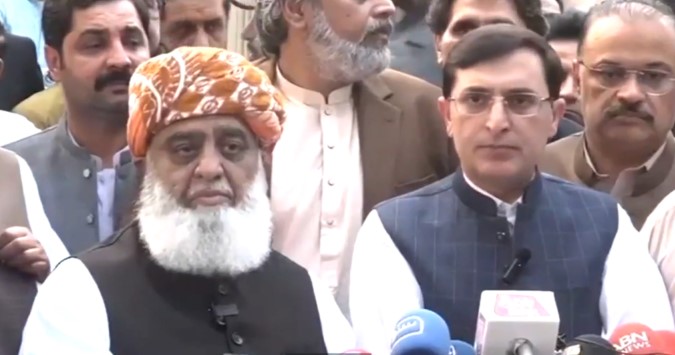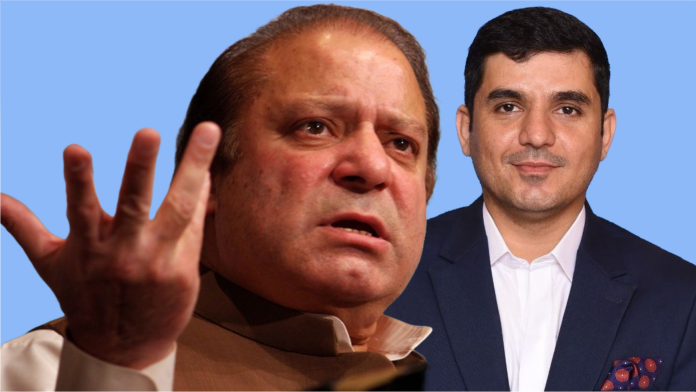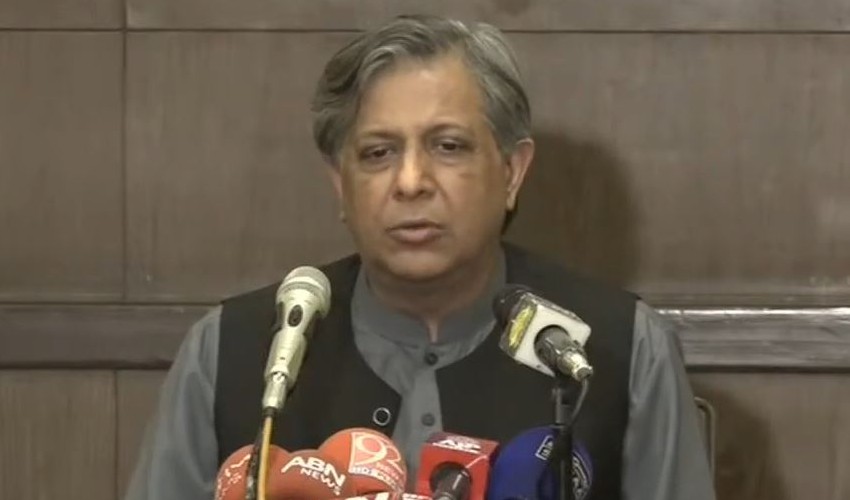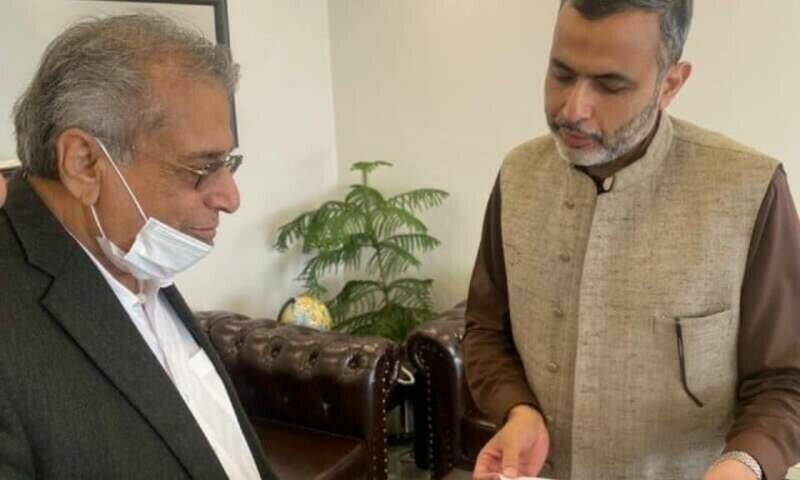POLITICS & POLICY MAKING

Pakistan Tehreek-e-Insaf (PTI) has labeled the legislation as a "black law," asserting that a significant crime has been committed through this new legislation. Party leaders have drawn parallels between the current amendment and past constitutional changes that led to martial law impositions in 1956 and 1962, warning that this government is on a path to destruction.
Before the Senate session discussing the 20th amendment, PTI Chairman Barrister Gohar voiced his party's stance, announcing that they would not support the 26th constitutional amendment. "We take every decision with the advice of PTI founder, and Maulana Fazlur Rehman’s role on the 26th Amendment is something we value," he stated during a press briefing alongside the Jamiat Ulema-e-Islam (JUI) chief.
Gohar reaffirmed PTI’s commitment to opposing the amendment in both the Senate and the National Assembly, stating that their relationship with Maulana Fazlur Rehman would remain strong in future collaborations. He emphasized the importance of their leader, Imran Ahmed Khan Niazi, and expressed confidence in his continued leadership.
Following the Senate's passage of the amendment, a PTI delegation met with Maulana Fazlur Rehman and other JUI leaders to discuss the ongoing legislative developments. PTI figures such as Asad Qaiser and Umar Ayub were also part of this delegation, highlighting the party’s collaborative efforts in opposing the amendment.
Senator Ali Zafar, the PTI's opposition leader in the Senate, also denounced the amendment, stating that it lacks the necessary national consensus. "The way this amendment is being done, I think it is a crime, but I know that this amendment will be passed,” he remarked. Zafar emphasized that the constitution should unite the people rather than create divisions, criticizing the lack of consensus that plagued previous constitutions.
The concerns raised by PTI leaders reflect a broader unease about the current government's legitimacy and the implications of constitutional changes on Pakistan’s democratic framework. Salman Akram Raja, another PTI leader, described the amendment as a "black amendment," reiterating that the current government does not possess the trust of the populace.
Adding to the internal challenges, reports emerged that 11 MNAs from PTI had lost contact with the party leadership prior to the National Assembly session, raising questions about party cohesion. Despite these challenges, PTI leaders including Gohar, Sahib Dazada Hamid Raza, and Aamir Dogar convened in the National Assembly to voice their opposition to the constitutional amendment.
As tensions escalate within Pakistan's political landscape, the outcome of the 26th constitutional amendment will likely have lasting repercussions on the nation's governance and the role of opposition parties in shaping its democratic processes.




